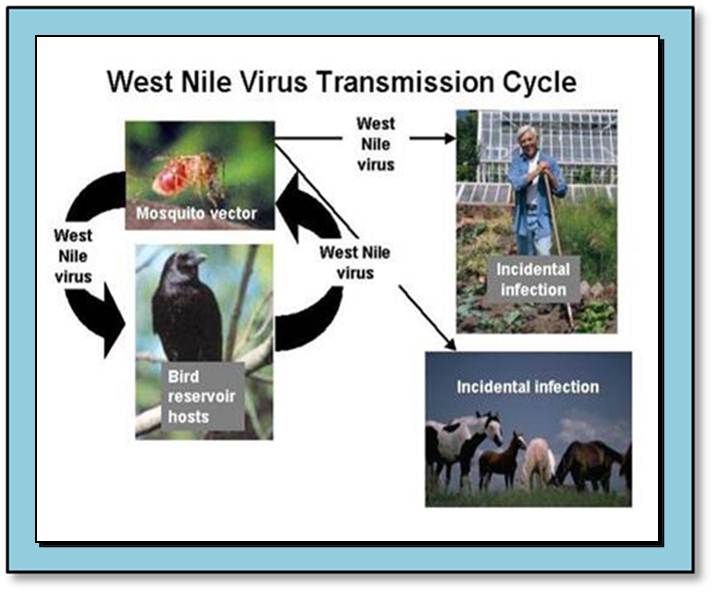What Is the Danger From Mosquitoes?
Diseases can be transmitted through the bite of an infected mosquito. The most commonly reported mosquito-transmitted disease in West Virginia is La Crosse encephalitis (LAC); particularly in the south-central part of the state. Also, cases of West Nile encephalitis (WN) have occurred throughout the state.
What Are the Symptoms?
Symptoms of encephalitis include fever, headache, nausea, vomiting, abdominal pain, stiff neck, and fatigue. Disease progression could result in further neurological problems, such as tremors, seizures, movement disorders, and coma. Since there is no specific treatment for encephalitis, the only way to prevent mosquito-transmitted encephalitis is through reducing contact with infected mosquitoes.
|
 |
How Do We Avoid Mosquito Bites?
1. Avoid Bites
When campers and staff venture into a mosquito habitat, they should be encouraged to take these precautions:
- Use mosquito repellents containing DEET, picardin, IR3535, or oil of eucalyptus on campers and staff before going into a mosquito habitat.
- Campers and staff should wash with soap and water when they return from a mosquito habitat. Since mosquitoes are attracted to cues produced by living, mammalian hosts (such as lactic acid, octenol, and carbon dioxide), regular bathing is encouraged.
- Campers and staff should carefully read and follow the label directions when using repellents. Repellents should be used sparingly.
- Encourage campers and staff to wear long sleeves, pants, and socks when going into a mosquito habitat.
- For young children, never apply repellent to the face. Oil of eucalyptus is not to be used on children less than three years old.
2. Reduce Mosquito Populations The camp staff and administration's most important task in mosquito bite prevention is to assure that mosquito populations are minimal or low in the main camp environment, i.e. around living and activity areas and around the mess hall and bathroom facilities. In addtion, secure, intact screens should be installed on windows and doors to prevent mosquitos from invading indoors.
Mosquito vectors of LAC breed in containers holding water. Water-holding cavities in trees and rock pools are the natural habitat for LAC, but old tires, rain barrels, buckets, concrete basins, clogged gutters, and wading pools are good mosquito-breeding grounds. Here's how you can lower the mosquito population:
- Remove artificial containers-any container that can hold water- and seal tree holes with gypsum wool rock around the campsite.
- Mosquito vectors of WN (West Nile Encephalitis) also breed in temporary and permanent pools, storm sewer catch basins, ditches, and cesspools. Reduce these by filling or properly draining the area. Bacillus thuringensis (Bti) and Bacillus sphaericus (Bs) are safe, commercially available microbial insecticides useful in reducing mosquito larvae in ground pools, storm sewer basins, ditches, and cesspools.
3. Support the WV Mosquito Surveillance Program The West Virginia Department of Health and Human Resources and local health departments monitor mosquito activity throughout West Virginia from summer through early fall. Camp directors can get assistance handling mosquito problems by contacting the local health department or by calling the Division of Infectious Disease Epidemiology (DIDE) at (800)-423-1271, extension 1; or at (304)-558-5358, extension 1. These groups will help identify mosquito breeding sites and make mosquito control recommendations.
4. If You See a Dead Bird Report It.
| Since West Nile Virus is perpetuated by passing between mosquitoes and bird, infection rates in the bird population can serve as an indicator of WN in the community. If you see a dead bird, make note of where and when you saw the bird and then call your local health department (lhd). If the lhd asks you to do so, put one garbage bag inside another garbage bag and place the bird's body in the double garbage bags. Always wear gloves when handling a dead bird. Wash your hands with soap and water after removing your gloves. Although there is no evidence that West Nile can be transmitted through handling dead birds, always use caution when handling any sick or dead animals. |
 |
Want to Learn More?